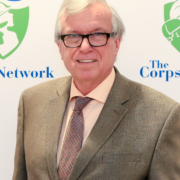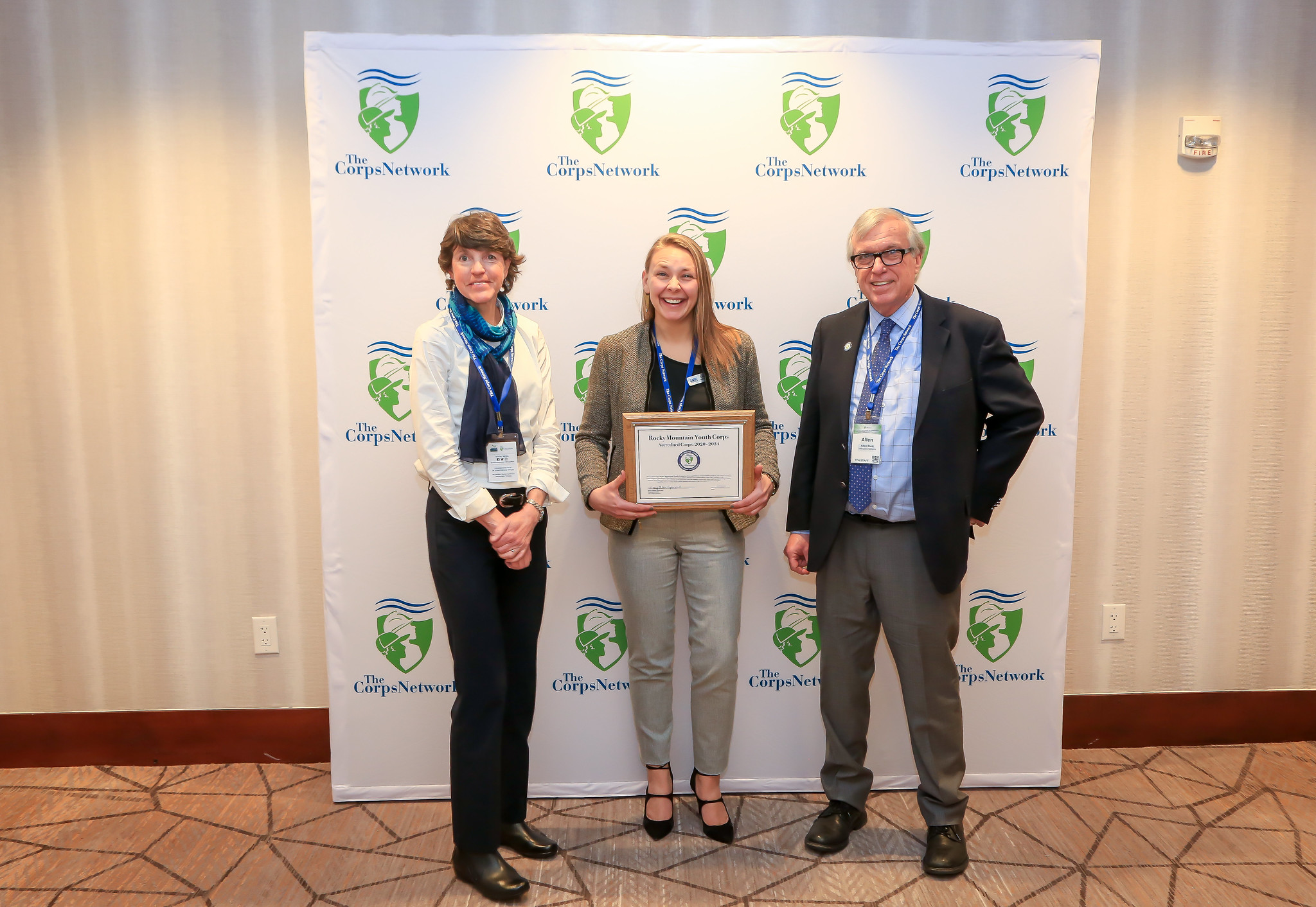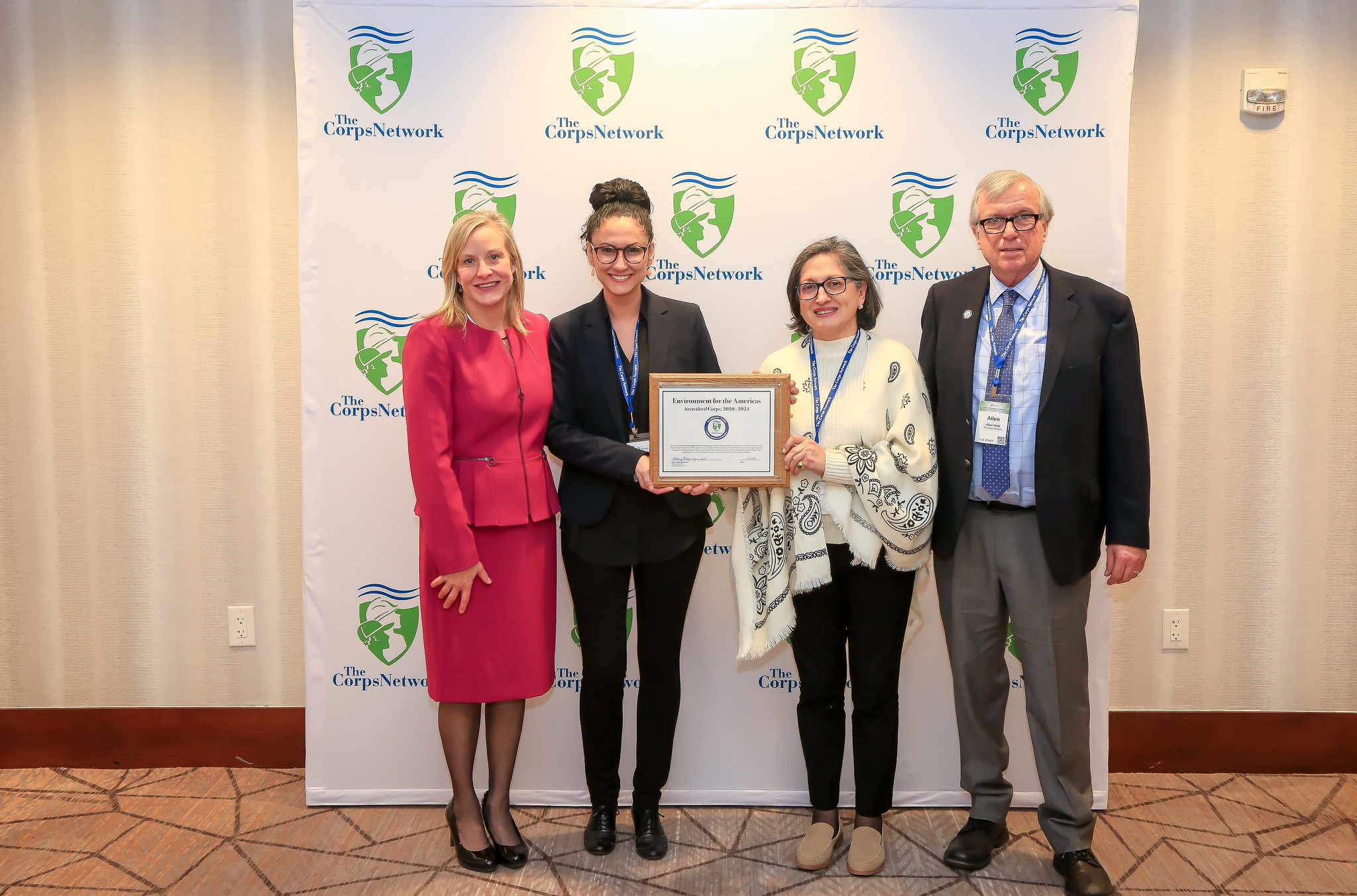
Allen Dietz, Administrator for Accreditation at The Corps Network, will be recognized as a 2024 winner of The Corps Network Legacy Achievement Award. The Legacy Achievement Award is one of the highest honors The Corps Network grants; it recognizes exceptional leadership and notable achievements within the national Service and Conservation Corps community. Honorees are those who have worked at least 15 years in the Corps world, served in a senior leadership position at a Corps, and made significant contributions to the national movement. We spoke with Allen to learn how he came to be involved in the Corps movement and the impact he has made.
The 2024 Legacy Achievement Awardees will be recognized during The Corps Network National Conference, happening March 19 – 21 in Washington, DC.
Share a bit about your background.
I have a background in social work, clinical psychology, and non-profit management. I started the first statewide AmeriCorps in Texas in 1994, the first year of AmeriCorps, and expanded from 76 members the first year to 250 members in subsequent years. I’ve worked at the Texas Commission on Volunteerism, the Washington Service Corps, was a national consultant and trainer to the Corporation for National and Community Service on program evaluation and performance measures, helped develop and implement VISTA pre-service orientation materials, was a Retired and Senior Volunteer Program (RSVP) director, and helped develop and implement the accreditation program at The Corps Network.
How did you become involved with Service and Conservation Corps?
I was working as a federal grant writer at a state agency in Texas and wanted a different job so I worked with a team to write a grant proposal to start a new AmeriCorps program at the beginning of AmeriCorps and wrote a position in the proposal for me as the director of the program. Once the program was funded and up and running, I joined The Corps Network because at that time it was the only source for reliable information and training on running Corps.
Who are some of your personal and professional heroes?
My professional heroes are Dan O’Leary, a psychology professor at Stony Brook who taught me a lot about critical thinking and the scientific method, and Neil deGrasse Tyson, who continues to amaze and impress me with his logic and insights. My personal hero is my wife, Louise Verellen, who teaches me about commitment and love every day.

What is the primary piece of wisdom you’d give to Corps staff working today?
The two unerring truths I’ve learned over my career are 1) Teamwork is essential to success., Find as many different ways as you can to teach, model, and provide opportunities to develop strong, high functioning teams throughout your organization. I can’t think of a single major accomplishment in my career that wasn’t the result of effective teamwork. 2) Embrace chaos. In your career you will repeatedly experience things that are totally out of your control. The pandemic is an excellent example of this. At The Corps Network we were deeply concerned about the ability of Corps to survive the disruption caused by the pandemic. Instead, to our amazement and delight, many Corps not only survived but thrived, expanded services, developed new relationships in the community, and grew their Corps.
What is your advice to young people serving in Corps programs today?
I encourage young people serving in Corps today to take advantage of every opportunity you can during your term of service. The general work skills that you develop during your term of service will benefit you no matter what you end up doing as a career. Your experience in a Corps will help you develop an appreciation for conservation and service work that will be an asset to you and your community for the rest of your life. One of your greatest skills can be your curiosity. Learn as much as you can, it’s all going to help.
From your experience, what can Corps do to help empower young people to become the next generation of leaders?
Corps can provide an outstanding opportunity to provide leadership and teamwork training to Corpsmembers by intentionally building opportunities to learn and practice those skills in a supportive environment.
What role can Corps serve in breaking down barriers to success and providing paths for opportunity youth?
Corps can look for barriers in their programming that prevent or hinder success and work to address those barriers. Examples might be scholarships to pay for travel and equipment not provided by the Corps, support and help with arranging for transportation, childcare, health and mental health care, housing, and food if necessary to succeed at service, along with additional training to support Corpsmember development such as GED, HS diplomas, and additional skill training they may not have received previously. Corps can also support opportunity youth by providing access to successful role models, wither on staff, in Corps alumni, or in the community.
What is your fondest memory or favorite anecdote from working in the Corps world?
My fondest memories are of doing site visits to Corps and experiencing the wide variety of ways Corps are working in their communities. Opportunities to visit and talk with Corpsmembers in the field are always the highlights of those trips. I’ve had the opportunity to visit crews by traveling in Corps vans, by boat, and on horseback. Every trip has been a delightful experience for me.
What would you say is one of your proudest achievements during your time working with Corps?
The AmeriCorps program I developed in Texas targeted opportunity youth. We were incredibly successful at helping young people learn new job skills, gain experience, get off welfare, and enroll in college. At one point, our program was the largest provider of college scholarships in several communities in Texas. One young mother told me she was the first person in her family to ever go to college, and she did it to be a model for her children to show them it was possible.
Is there anything you created, learned, or achieved in your position that you believe can be translated to other Corps across the country?
When I started as an AmeriCorps director, there were no resources on how to design a successful program, we were all starting from scratch. I’m proud of the accreditation framework we developed at The Corps Network and the material in the resource library that will provide a strong base for new and current programs to strengthen their Corps.
You played a lead role in creating the Corps Center of Excellence Accreditation Program. To date, more than 40 Corps programs have undergone Accreditation. The process might seem daunting to Corps that haven’t become Accredited yet. What would you say to these programs? Why should they consider Accreditation?
I strongly encourage all Corps to use the accreditation standards as a “best practice” guide. Walk through the standards with your staff. See which ones you’re meeting and which ones you could improve. The standards were designed by Corps directors and Corps staff and represent years of best thinking around what makes a strong, successful Corps. Many Corps have told us that the process of applying by itself helped to strengthen their Corps by pointing out areas they needed to work on and by forcing them to review policies they hadn’t looked at in a long time. Even if you don’t plan to go through the accreditation process in the near future, you are bound to find ways to improve your operations based on the standards and materials we’ve collected. The online reference library has lots of examples from successful Corps that you can access to improve your policies and procedures, and Corps operations. The goal of the accreditation process is to help you develop a strong, safe, fiscally sound program that accomplishes good things in your community. Let us help you achieve that.





































































